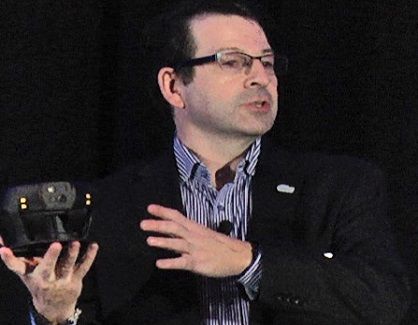-(38).png)
Booming Sector
2020 saw the UK’s tech sector achieve its best year ever, making the combined value of UK tech companies founded since 2000 at £540 billion. While Cambridge is the leading regional tech city in the UK, tech jobs in Manchester increased by 164.6% in 2021 and Edinburgh offered the highest advertised average salaries outside of London, at £58,405.
£29.4 billion went into UK tech in 2021, which rose by 2.3 time from the previous year’s £11.5 billion figure. Tech is continuing to create opportunities for both qualified employees and business start-ups, as the number of unicorns (businesses valued at £1 billion or more which aren’t listed on the stock exchange) is higher than ever, with 29 created last year.
As technology continues to advance, and smart technology extends from small products to larger ones, and eventually to the smart cities of the future, the opportunities in tech have never been more promising, varied, or populous.
Computer Science graduate makes use of AI to develop a new chat bot
Types of careers in digital and cyber
There are many different and varied careers involved in the Digital and Cyber industry, so the roles listed are not extensive but give an overview of possible career paths.
Cybersecurity analysts safeguard organizations by utilising various technologies and processes to mitigate, identify, and handle cyber threats.
A web developer will write code for building, updating, and maintaining websites and applications, planning and creating them as required, while deciding the most appropriate technologies and languages for each project.
Software engineers analyse the needs of users, writing and testing code as needed. You will also develop existing systems, investigate new tech, and maintain systems already in operation.
You'll need a passion for games, technical skills and the ability to work on your own and with a team to succeed as a games developer.
Forensic computer analysts investigate computer-related crime (cybercrime), including data breaches, security incidents and other online criminal activities
Data scientists turn raw data into meaningful information that organisations can use to improve their businesses.
The Covid-19 pandemic has highlighted the urgent need for improved understanding and implementation of digital skills, meaning that there has never been a better time to enter a job in the digital and cyber sector. Large parts of society have been forced to adjust to remote working and distance learning, making digital skills an essential part of most modern careers.
For this and other reasons, the demand for technology-related skills is growing, with an estimated annual increase of 4% according to the European Commission, and last year the European market had a deficit of 756,000 ICT experts. Software engineers and associated roles were the most sought-after, with up to 128,000 in demand last year. There is also a strong and growing demand for cybersecurity specialists and system administrators.
The West Midlands’s digital sector has been named the UK’s fastest growing region, as it is on track to create an additional 52,000 digital tech jobs and grow by £2.7 billion by 2025.
Between the years 2014 and 2019, the region’s tech sector grew by an average of 7.6%, and shows no sign of slowing. They were on track to raise more venture capital investment in 2021 than the previous year during the government’s last released figures, while tech vacancies came close to doubling when comparing December 2020 and October 2021.
The rise of remote working is likely to see more tech entrepreneurs starting and running businesses from anywhere in the UK, as well as employment opportunities spreading further across the country for those wishing to work from home.
The West Midlands benefits from having the country’s highest proportion of households with internet access at 97%.
/prod01/wlvacuk/courses/media/images/2019-re-design/intro-banner/students_learning.jpg)
Our expertise
We pride ourselves on the breadth of expertise and specialisation the University has in the areas of digital, cyber, and tech.
If you study a related course with us, you will be based at the impressive Alan Turing Building on City Campus. This specialist, state-of-the-art research and teaching space offers the use of over 600 PCs, each of which has a bespoke portfolio of over 140 mathematical and statistical applications including SPSS, Minitab, and Maple.
Courses at the School are accredited by prestigious professional bodies, such as the British Computer Society, Chartered Institute for IT, and the Institute of Mathematics and its Applications.
Our School staff include both research-active academic staff and experienced academic professionals who collaborate with international institutions, consult for multinational business, and lead international research projects. Mike Thelwall, computer scientist and mathematician at the University’s School of Mathematics and Computer Science, has been listed as one of the world’s top cited social scientists for three years in a row for his work in the department.
World Class Facilities
World Class Facilities
FAQ's
Frequently Asked Questions
There are numerous routes to starting a career in IT, including studying at university or earning while you take an apprenticeship. It’s possible to get into an IT career with a non-specific degree or even without one, but by graduating from a relevant course you will increase your desirability as an applicant. Studying a related degree will also mean that there are more tech jobs available to you once you graduate, as more technical job roles are likely to require you to have studied a specific course.
To get onto a degree in a digital- or cyber-related degree, your course requirements will depend on the course and the university you apply to. If you want to study at the University of Wolverhampton, for example, you will need 96 UCAS points or grades CCC/BCD at A-level for Computing and Information Technology BSc, or Computer Science (Software Engineering), or Computer Games Design.
When you qualify in an area as desirable as the digital and cyber sectors, you are far more likely to find a job than you might in other sectors with fewer available roles. In cybersecurity, for example, there is low-to-no unemployment for qualified jobseekers. There are also opportunities to continually develop, adapt, and apply your skills, keeping up to date with new technologies and constantly learning. Jobs in IT are among the best-paid in the world, and as technology continues to grow as an essential career field, pay rates will likely increase too. CNBC also revealed that a survey showed that 90% of tech workers are satisfied with their jobs.
That depends on the job you plan to apply for. There is a significant skills shortage in IT, meaning that many employers are very keen to employ digital and cyber staff quickly.
While you will usually need a qualification to work in IT, you may be able to get your qualifications while you work if you become an IT technician.
While a qualification or course in a specific area of the digital or cyber sector is likely your best route towards getting a role in IT, there are other ways to gain experience too. Working on projects at home using equipment you will have in the field will allow you to develop your knowledge and skills first hand, working at your own pace outside of the confines of an organised course.
You may also take on freelance clients by creating your own website, or a profile on a freelance website, or even reaching out to businesses. If you are not yet advanced enough in your understanding, you could even volunteer to work for a non-profit organisation or a start-up.
All of these can provide your CV with worthwhile experience that demonstrates why a company should hire you, or why a college or university should accept you onto their course.
Take the next step
*52,000 extra digital tech jobs by 2025 in West Midlands - Souce: Department of Digital, Culture, Media and Sport, Assessing the UK’s regional digital ecosystems report, Oct 2021


/prod01/wlvacuk/media/departments/digital-content-and-communications/images-2024/Diane-Spencer-(Teaser-image).jpg)
/prod01/wlvacuk/media/departments/digital-content-and-communications/images-18-19/220325-Engineers_teach_thumbail.jpg)
/prod01/wlvacuk/media/departments/digital-content-and-communications/images-2024/UoW-sign-(teaser-image).jpg)
/prod01/wlvacuk/media/departments/digital-content-and-communications/images-2024/UoW-City-Campus-(Teaser-Image).jpg)
/prod01/wlvacuk/media/departments/digital-content-and-communications/images-2024/241014-Cyber4ME-Project-Resized.jpg)
/prod01/wlvacuk/media/departments/digital-content-and-communications/images-2024/Indian-delegation-(teaser-image).jpg)
/prod01/wlvacuk/courses/media/images/2019-re-design/video-banner/homepage_clearing.jpg)

-(36).png)
-(37).png)




















/prod01/wlvacuk/courses/media/departments/marketing-and-communications/images/Prashant-Cyber-Award.jpg)
